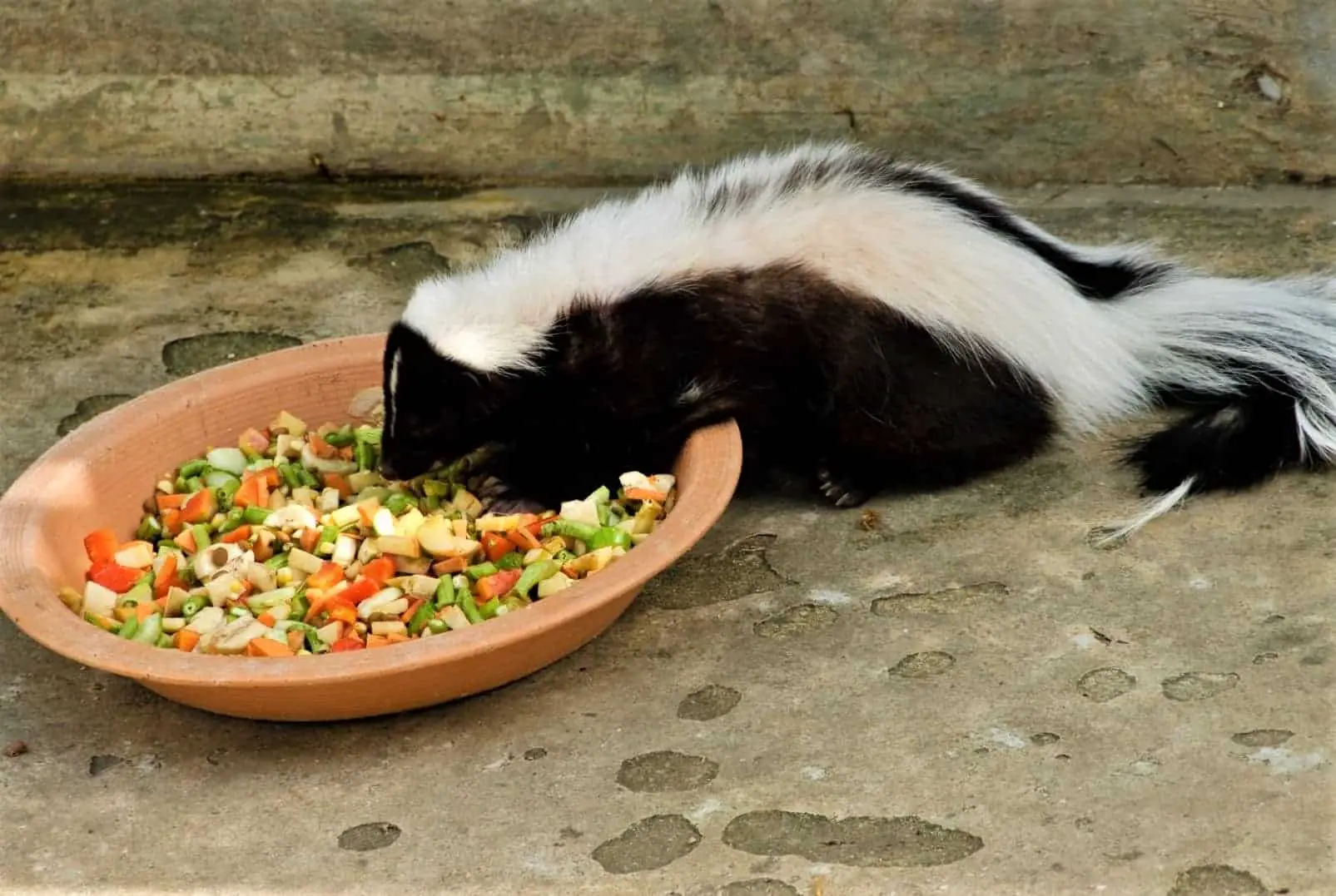It is crucial that you remove raccoon trash if they have taken over your home. These bothersome creatures not only destroy property, which can result in floods, fires, or tainted food, but their excrement is also highly hazardous. In your home, raccoon urine and excrement can transmit diseases. Despite what is commonly believed, raccoons are not limited to forested settings. They can also be seen frequently in suburbs and cities. Raccoons who are sick usually pass roundworm eggs in their feces, which spread the virus. To avoid the the diseases from raccoon latrine you must need to safely clean a raccoon latrine.
How to Safely Clean a raccoon latrine
It’s easy to overlook raccoon waste since it resembles dog feces initially. Raccoon excrement has a stronger smell and typically contains bits of food that haven’t been fully digested. Moreover, raccoons frequently use outdoor or indoor communal spaces known as raccoon latrines. Raccoon latrines can be discovered in attics, garages, decks, porches, and tree bases.
The easiest way of cleaning raccoon latrine, put some hot, soapy water in a bucket. Raccoon feces and materials infected with them should be removed (with a shovel or an inverted plastic bag) and disposed of in a landfill, burned, buried, or bagged. Wipe the area with a moist sponge, not wet. Regularly rinse your sponge in the bucket. Raccoons are not as harmless as they seem. The primary host of the deadly roundworm Baylis Ascaris procyonids, which can cause fatalities in humans, is the reason for this.
Why are raccoon latrines dangerous?
Because raccoon latrines are known to harbor bacteria, homeowners should exercise caution when near them. Roundworms are an additional threat posed by these nocturnal mammals. These parasites enter the body through the mouth and subsequently infect the digestive system. The diseased organism excretes roundworm eggs, which can potentially infect other animals. Feces can be consumed by humans or pets, or they can contract the infection by touching their faces after coming into contact with it. Fever, malnourishment, vomiting, and stomach discomfort can all be symptoms of a roundworm infection. It may result in a growth delay in kids. Thankfully, doctors can prescribe medication to address this disease, but nobody should have to go through what they did.
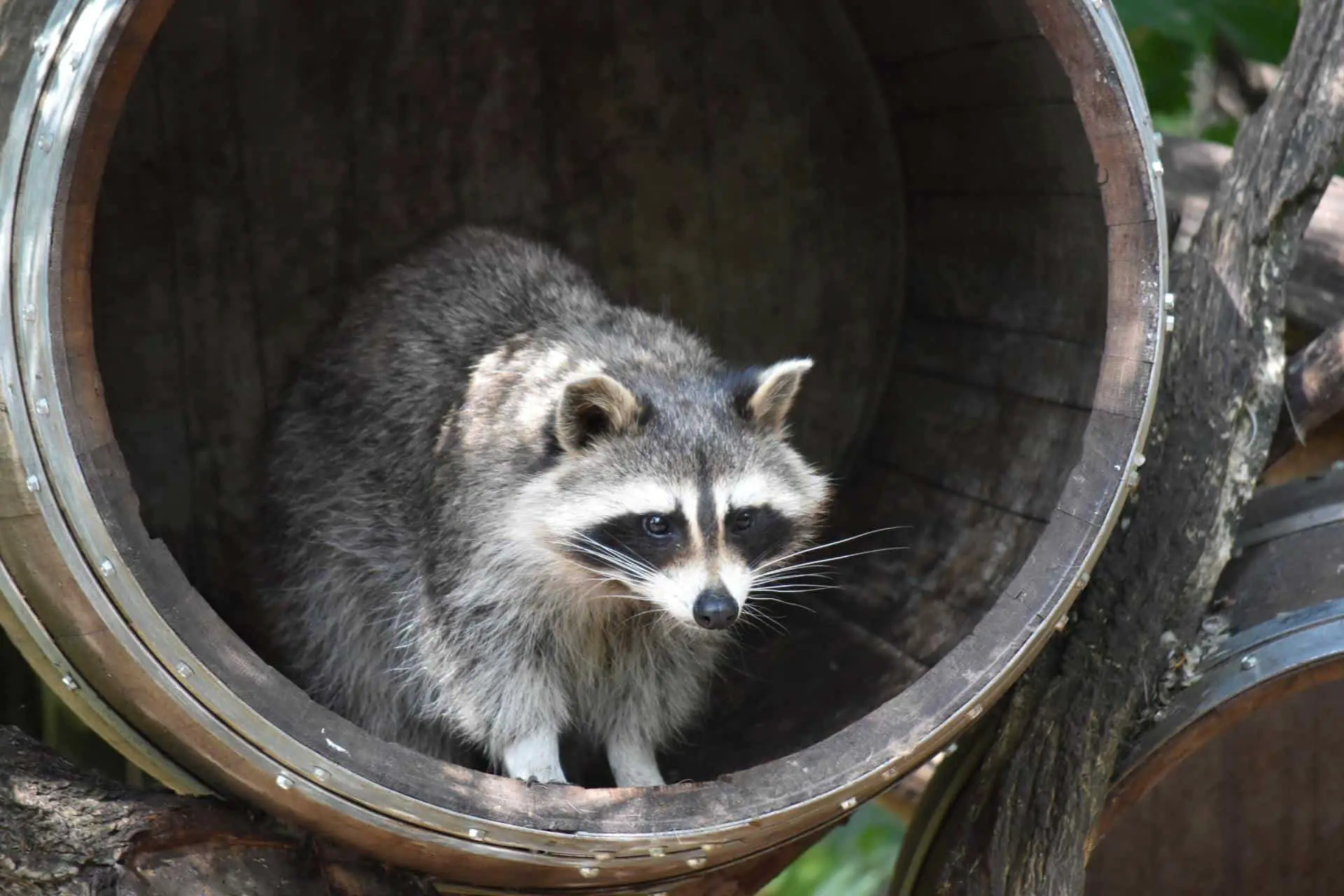
What do I do if I find a raccoon latrine?
Cleaning up the area around a raccoon latrine you’ve discovered in or close to your house could help avoid infection. It takes at least two to four weeks for the eggs in freshly deposited feces to become infectious. The danger of exposure and potential infection can be decreased by promptly removing and destroying raccoon excrement. Moreover, more than one furry thief may need to be removed when you call for raccoon removal. Like many other creatures, raccoons leave behind scat, which can be extremely harmful to people’s health. This is all you should know about removing latrines if you have raccoons on your property. Here are some pointers to help you if you decide to clean the waste yourself.
- Avoiding contaminating hands and clothes would help prevent infection.
- Use disposal gloves
- To avoid bringing eggs into your home, wrap your shoes with disposable booties that can be thrown away or wear rubber boots that can be cleaned.
- If working in a small space, wear an N95-rated respirator (available at local hardware stores) to avoid inadvertently ingesting eggs or other hazardous items.
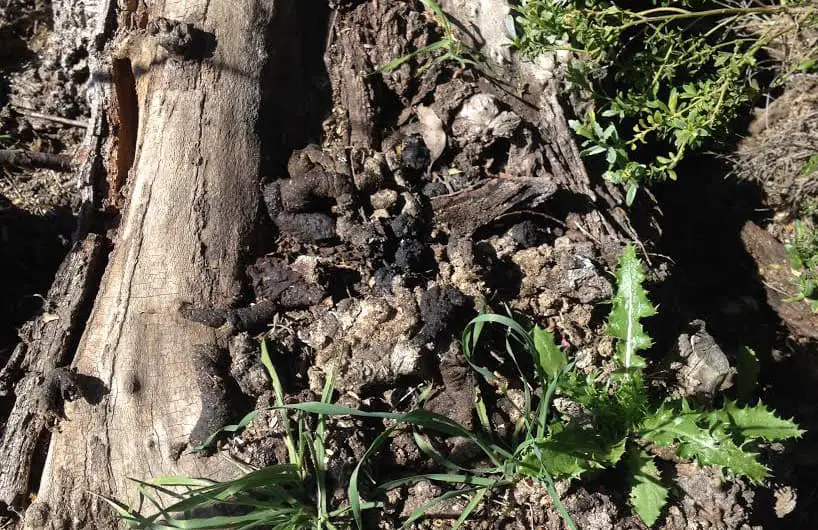
Cleaning Outdoor Raccoon Latrine
Raccoons latrines should never be around your living areas because of the diseases they may bring to your family. It is not easy to deal with raccoon mess. In general, to clean raccoon waste outdoors, these four methods are typical. Also, learn to protect yourself from raccoon attack
- Raccoon feces and materials infected with them should be removed (with a shovel or an inverted plastic bag) and disposed of in a landfill, burned, buried, or bagged.
- Roundworm eggs are not killed by most chemicals, although they are instantaneously killed by heat. Use boiling water or a propane flame to clean decks, patios, and other surfaces contaminated with excrement. Most chemicals are not meant for outdoor use and do not destroy roundworm eggs. Extreme heat will destroy eggs instantly. Contaminated dirt should be broken up and turned over many times, igniting each time. While using a propane torch to flare is efficient, it may result in surface damage, burn injuries, or fire. For information on local laws and safety procedures, give your local fire department a call before lighting any latrine sites. Bricks, concrete pads, metal shovels, and gardening tools may all be flame-roasted without sustaining harm. Avoid attempting to ignite or melt surfaces with flames.
- Boiling water may be used to thoroughly clean hard, flat surfaces, such as shovel blades.
- Use warm, running water and soap to thoroughly wash your hands to further lower the chance of infection. Use hot water and detergent to give your items a thorough cleaning or laundering.
Cleaning Indoor Raccoon latrine
As raccoons can create latrines outside your house and fences, they can create latrines inside your living areas too. Raccoons love dark, warm, and safe places to live and make latrines and places from your home like your attic, fence lines, and roof.

Follow the below steps to effectively clean indoor raccoon latrines.
- Use a spray bottle to softly spritz the toilet area to prevent the accumulation of dust and debris.
- A propane torch should not be used indoors.
- Put some hot, soapy water in a bucket.
- Raccoon feces and materials infected with them should be removed (with a shovel or an inverted plastic bag) and disposed of in a landfill, burned, buried, or bagged.
- Wipe the area with a moist sponge, not wet.
- Regularly rinse your sponge in the bucket.
- Empty the unclean water down the toilet after cleaning the area. Boil some water and use it to clean the bucket.
- After placing the sponge inside a plastic bag, discard the plastic bag
Why is clean-up necessary?
You must take all necessary precautions to protect yourself from any potential infectious disease before cleaning up after a raccoon, preferably after you have removed them from your attic or yard. Never put your hands in excrement. When picking up excrement, always use rubber gloves. Throw them away once you’re done cleaning. Put on disposable cleaning clothing and boots, and be sure to give them a thorough wash after cleaning. Finally, cleaning up the area around a raccoon latrine you’ve discovered in or close to your house might help avoid illness. It takes at least two to four weeks for the eggs in freshly deposited feces to become infectious. The danger of exposure and potential illness can be decreased by promptly removing and destroying raccoon excrement.
- How do wildlife removal experts get rid of raccoons?
- How to Create macOS Sonoma ISO Image File for Virtual Box and VMware
- How to help an injured raccoon?
What to do if you get raccoon poop on your clothes and skin
Raccoon excrement is a vector for the Hantavirus, which may spread to humans through direct contact and result in serious health problems. This virus is very contagious and can lead to lung problems, which is another reason to use extreme caution while touching raccoon excrement. Additionally, people run the risk of contracting raccoon roundworm, which can lead to liver issues; Leptospirosis, a bacterium that can cause fever, diarrhea, headaches, and muscle aches; and Giardiasis, which can cause diarrhea, dehydration, and other symptoms. Additionally, raccoon urine may contain several pathogens that cause sickness in the kidneys or liver.
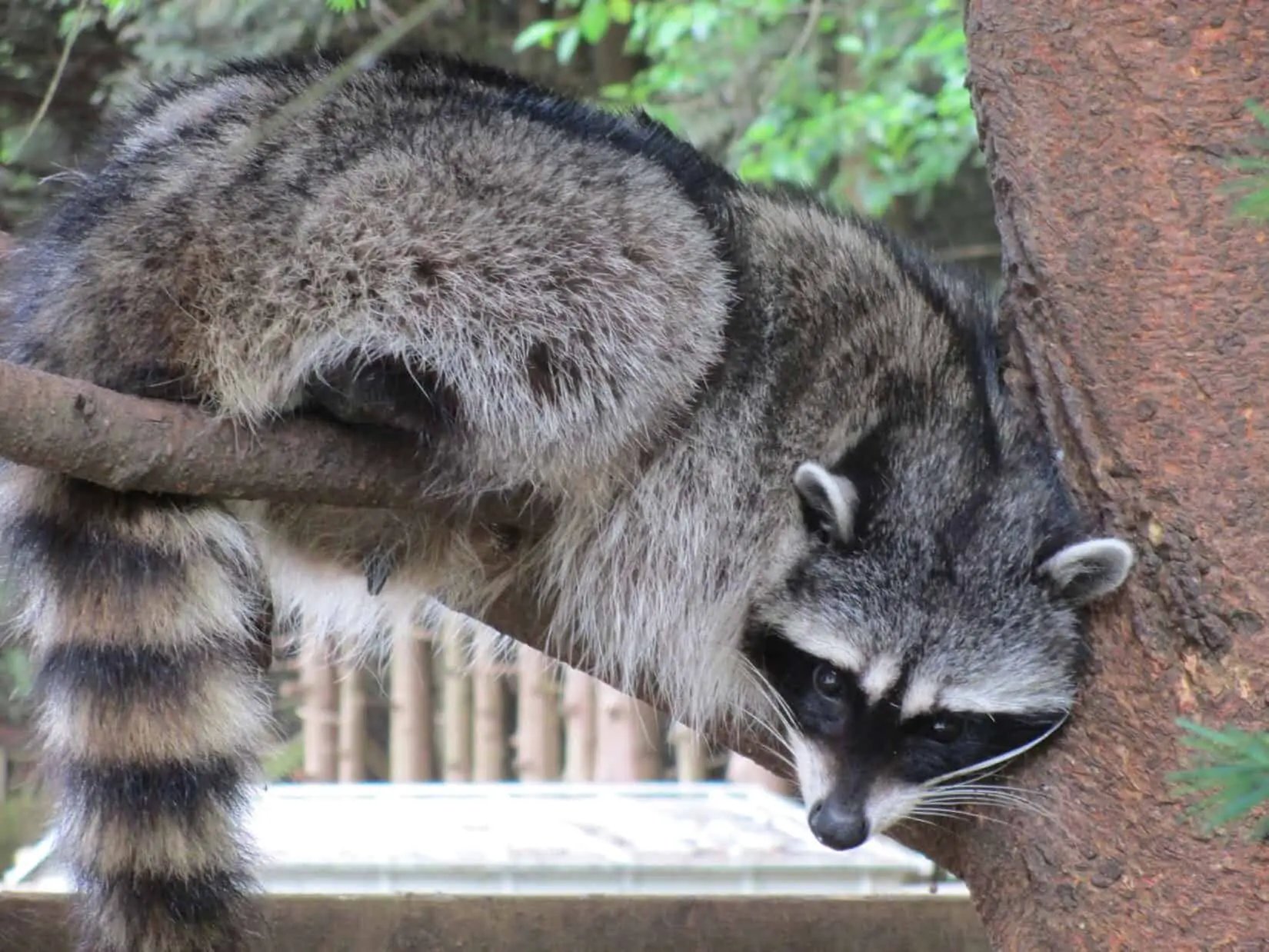
You run an even greater risk if you come into contact with a raccoon’s excrement since they can harbor a wide range of illnesses that, while raccoons are only carriers, can have major effects on humans. To sum up, cleanse your skin with gentle soap and warm water, and be sure to use a brush to get under your nails. Separately wash the garments in hot, soapy water; bleaching is optional but can be done if preferred.
When do you need professional help?
“How do I get rid of a raccoon latrine?” is a question that homeowners may have after learning that they have raccoons on their property. However, public health organizations and animal removal specialists encourage you to delegate this task to experts. One reason is that removing raccoon latrines needs safety gear.
- respirator with an N95 rating
- Rubber boots or disposable booties
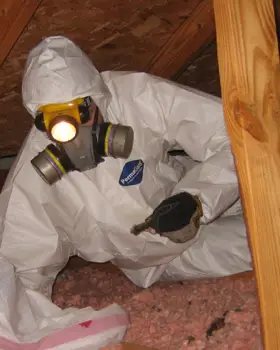 Single-use gloves
Single-use gloves- Bags made of plastic
- Shovels
These are the things that somebody trying to clean himself would have to buy. They cannot be used for any other purpose after being used to clean a latrine, since doing so poses the danger of contamination. Expert removal services ensure the safety of both their staff and your house by budgeting for top-notch equipment. The matter of physical removal is another. You most likely lack the expertise needed to manage this risk securely as a homeowner. Wildlife control professionals know how to work fast while lowering the danger of contamination. Finally, it is, to put it mildly, disgusting to clean up a raccoon latrine.
Removing the raccoons may take some time, depending on their quantity. You might even need to remove a few inches of material from below the latrine due to the increased danger of contamination. Many individuals find it intolerable to work in a small place, wear a mask, and cope with an unpleasant stench.
FAQ
1. Can you get sick from cleaning raccoon feces?
The answer is yes if you touch them with your bare hands and do not follow the safety protocols mentioned because not only do raccoons themselves carry viruses, but their latrine is infectious too.
2. How long does it take to get sick from raccoon poop?
Though it is not exact, typically, the incubation period lasts between one and four weeks after exposure to symptoms.
3. How do you clean raccoon poop out of the attic?
Carefully gather the droppings and any surrounding debris or insulation using a shovel or scoop. Seal the top of the heavy-duty garbage bag after placing it inside. If necessary, use two bags and avoid ripping them. Take care when taking the bag out of the attic so as not to contaminate your house.
Conclusion
Consequently, raccoons are extremely dirty animals; they never think about the environment or other living beings. The only thing that comes to mind is to have a comfortable latrine and use it whenever they like. So, be careful about raccoon latrines because it is extremely harmful to human health and the environment over time. Most experts suggest that, in this case, it would be beneficial to call or ask a professional for help. Most cleaning materials cannot clean the raccoons’ waste and the bacteria that it creates. Finally, raccoon waste includes a variety of diseases that they cause and transmit by breathing. Keep away and use professionals’ assistance to be safe and sound.


